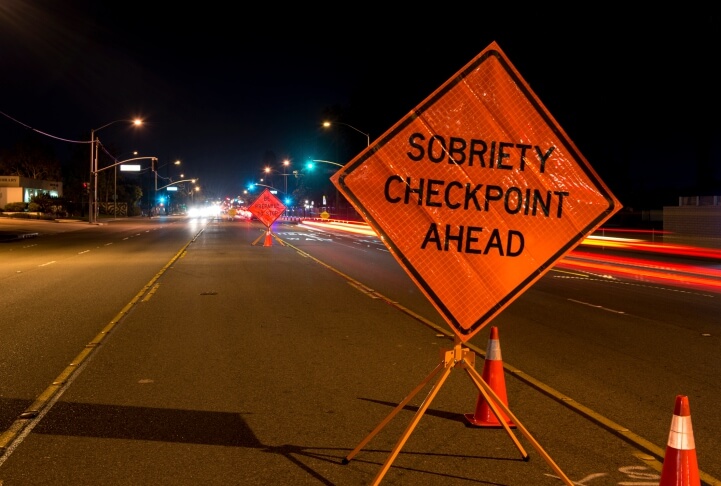
Stopped for DUI in Rhode Island: 6 Things to Know
One of the strictest aspects of Rhode Island’s DUI laws is the penalty on the books for drivers who refuse to submit to a chemical test. An officer will request a test of a driver’s blood, breath or urine to determine the precise blood alcohol concentration (BAC). In many states, refusing the test triggers a driver’s license suspension. But Rhode Island has more serious penalties. For a first refusal, there is a fine of up to $500, 10 to 60 hours of Community Service and an Alcohol Assessment that often leads to Driving Under the Influence School. That’s in addition to the driver’s license suspension of six months to one year. A second refusal within five years is punishable by up to 100 hours of Community Service, a fine of up to $1,000, a license suspension of one to two years, Alcohol Assessment and up to six months in jail.
Before getting to the point of a chemical test, a driver stopped for DWI in Rhode Island should know these six things.
1. Implied consent and sobriety testing
One of the reasons Rhode Island is so strict with drivers who refuse to submit to a chemical test to determine BAC is that the state’s Implied Consent Law requires drivers to consent to the test. According to the law, a driver consents in advance to the test by applying for a driver’s license in the state. However, criminal defense attorneys say the consent law doesn’t apply to the field sobriety test (standing on one leg of performing other actions). This test is designed to give police a better idea if a driver is impaired, but attorneys say the test is flawed and too often comes back with positive results for sober drivers.
2. Refusing the chemical test
As explained above, Rhode Island is very strict to drivers who refuse the chemical test, despite the Implied Consent Law. The lack of a BAC reading does not have much of an impact on a DWI trial. Instead, criminal lawyers say, the judge can rely on the testimony of the police officer. The prosecutor will use the fact that the driver refused the test as an implicit admission of guilt.
3. Expect to be videotaped
In Rhode Island, as in many states, it’s possible to be convicted for impaired driving even without a BAC of .08 or above. That’s where the description of the way you were driving and talking comes into play. The judge can get assess whether you seemed to be impaired with the help of a video of the DUI stop. Criminal defense attorneys say it’s so common for stops to be filmed that drivers should assume there is a camera in the patrol car or embedded in the officer’s uniform. The best way to appear sober, attorneys say, is by not saying or doing anything that may seem questionable. It’s fine to decline to engage in an extended conversation with the officer. Be polite and provide identification, insurance and proof of insurance. Otherwise, sit still unless the officer asks you to get out of the car.
4. More than .08 to worry about
Did you know that different classes of drivers have different legal limits when it comes to drinking and driving in Rhode Island? For most adults, the legal limit is .08 BAC. But a much stricter limit of .04 BAC is in effect for commercial drivers. That stricter limit recognizes the dangers a big rig can create, particularly one that may be carrying hazardous cargo. Drivers under the age of 21 are subject to the strictest limit: .02 BAC.
5. DUI penalties in Rhode Island
A DUI first offender faces up to one year in jail, a fine between $100 and $500, a driver’s license suspension between two and 18 months along with 10 to 60 hours of Community Service. For a second conviction within a five-year period, the penalties increase to a minimum of 10 days in jail and a maximum of one year, a fine of up to $1,000 and a license suspension of no less than one year and up to two years. A third offense in that five-year period is a felony punishable by up to five years in prison.
6. Total cost of a DUI in Rhode Island
A first conviction for DUI is costly, with $500 for a Highway Safety Assessment Fee, a fine of up to $500, Driving School at a cost of $250 and additional costs for bail, towing and the cost of the chemical test. The most significant costs involve legal fees and car insurance. A criminal defense attorney can vary widely – from $1,500 to $15,000 – depending on the complexities of the case and the experience of the attorney. Car insurance rates will increase significantly – perhaps as much as $1,000 to $2,000 a year – and remain at that level for at least 3 years.
This article is for informational purposes only. If you need legal advice you should consult an attorney.